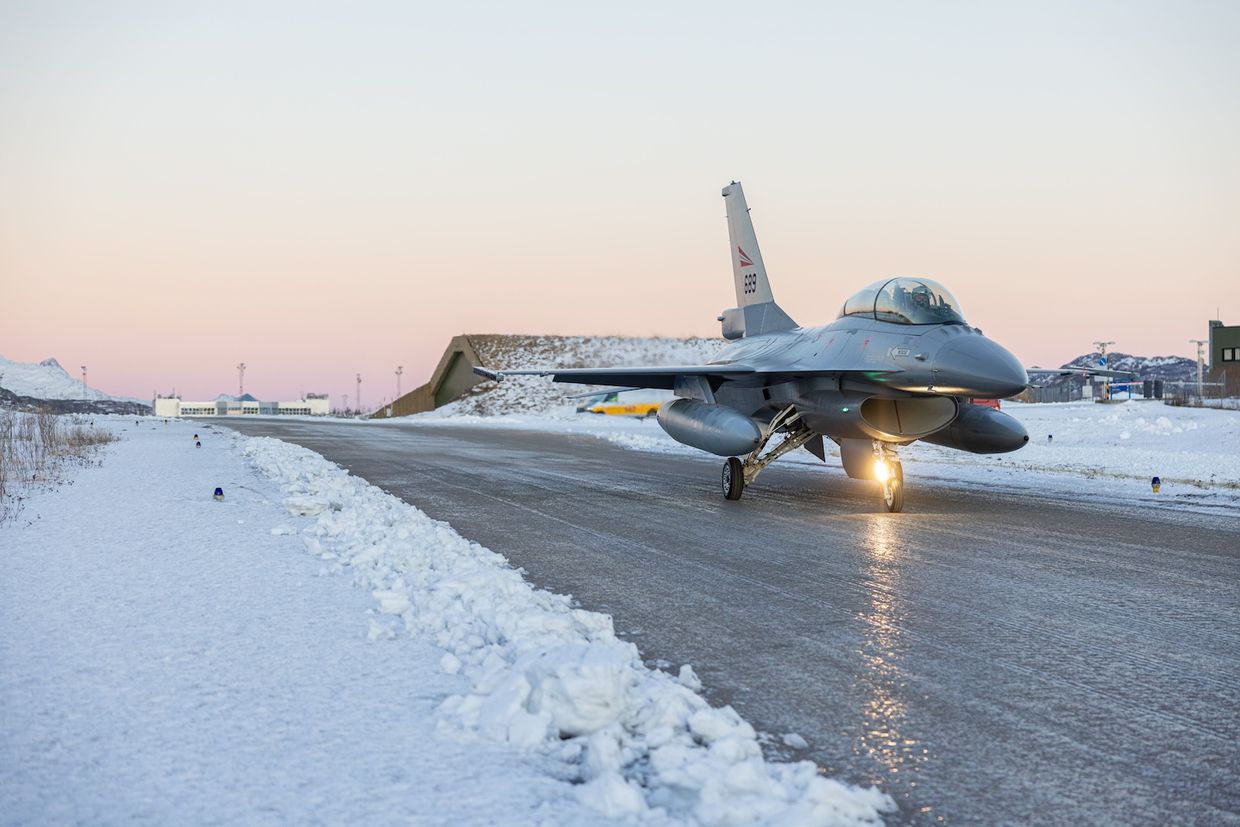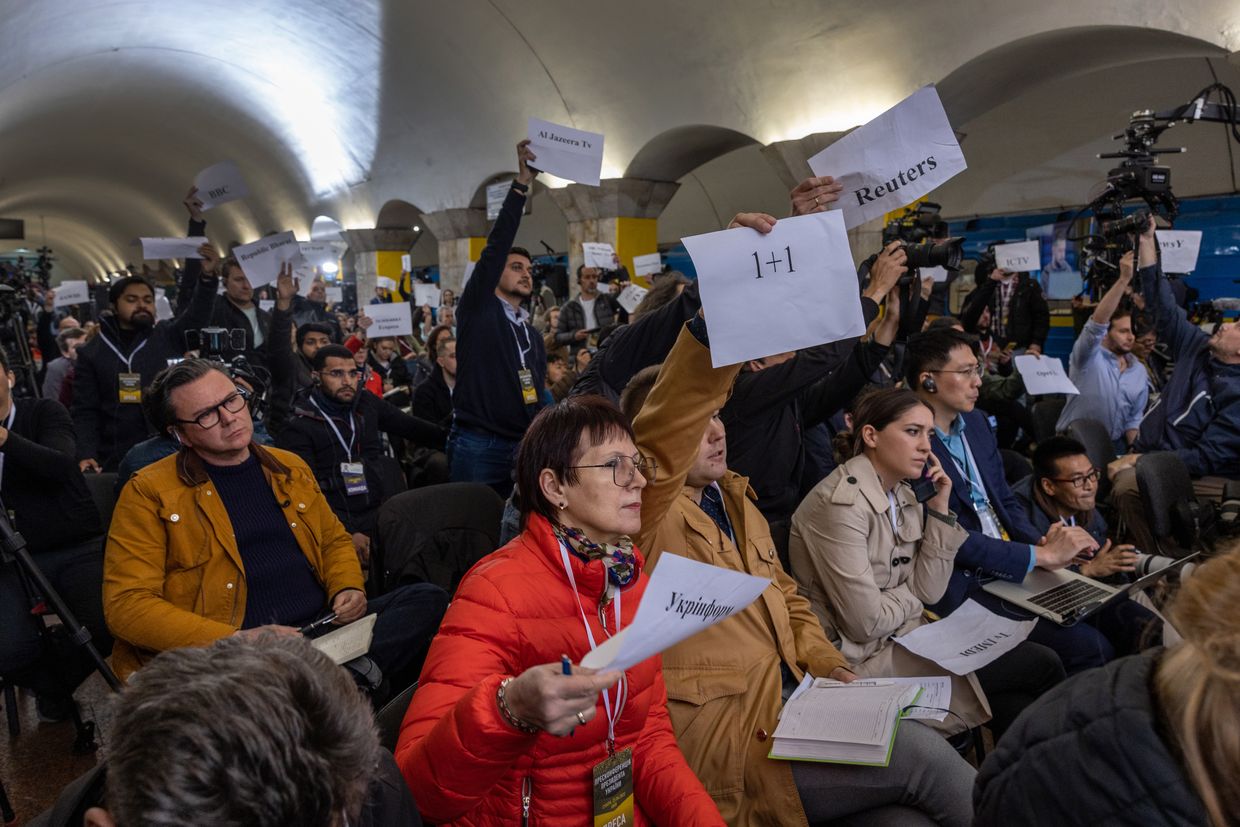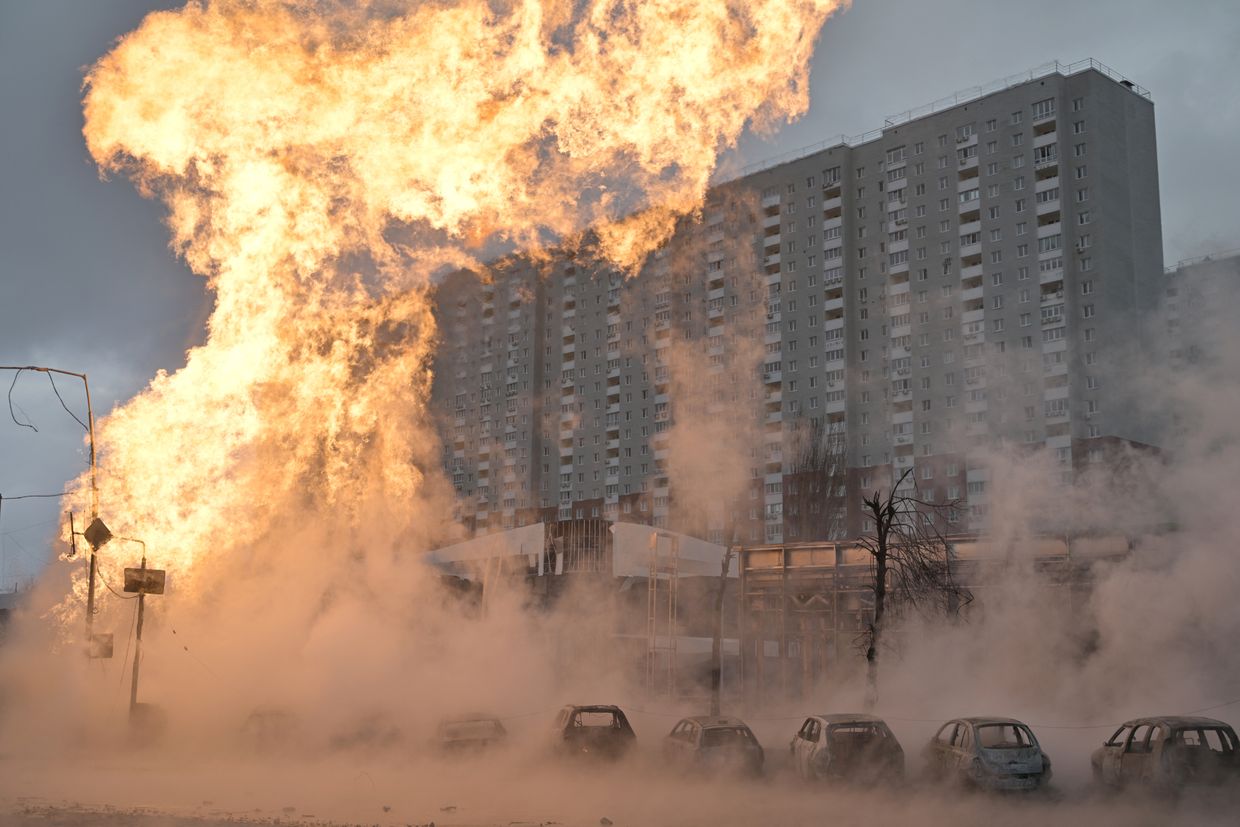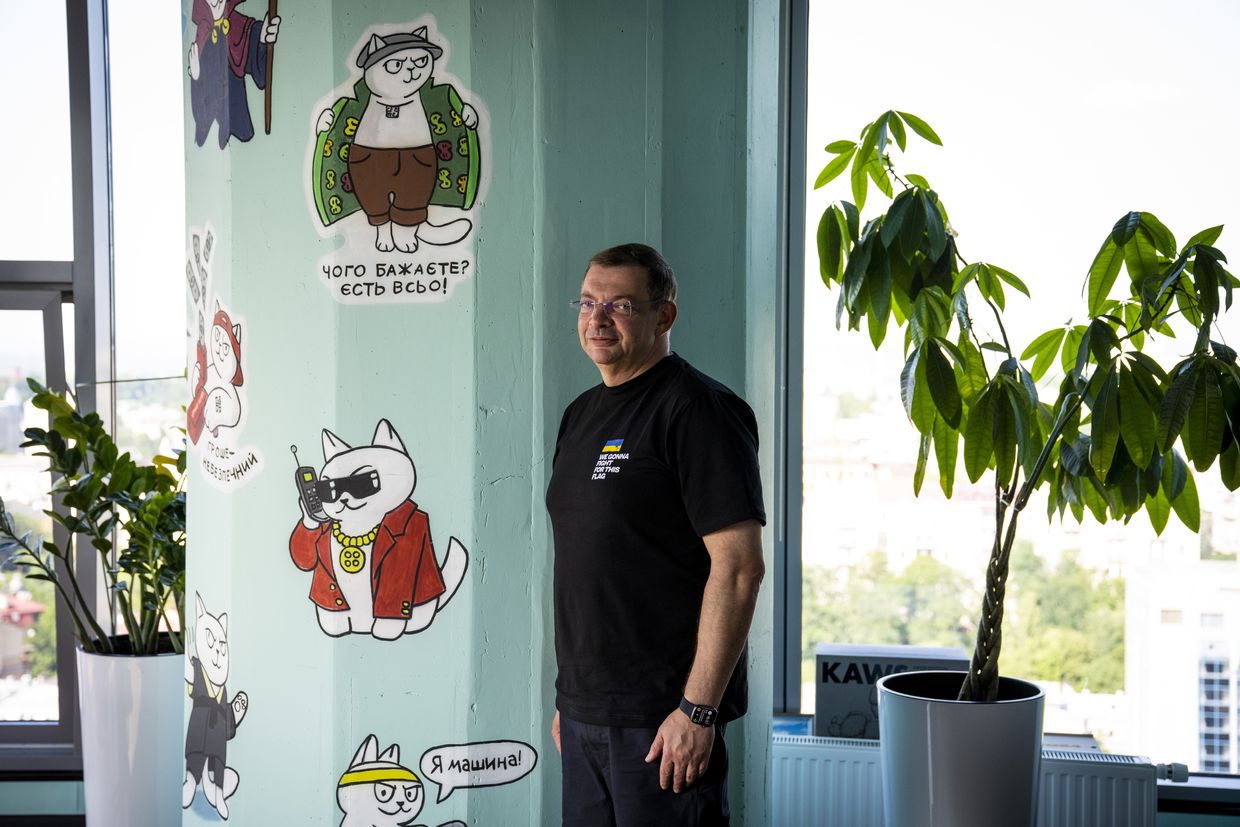Ukraine war latest: Russian air defense may not be prepared for Ukrainian attacks, ISW reports

Key developments on Jan. 22:
- ISW: Russian air defense may not be prepared for Ukrainian attacks
- Borrell: EU foreign ministers agree on plan to transfer profits from frozen Russian assets to Ukraine
- Russian forces claim attack on occupied Donetsk kills 27
- Russian attacks across Ukraine kill 3, injure at least 2
- Massive cyberattack targets Ukrainian online bank
Russian air defense systems in Leningrad Oblasts are likely not designed to protect the region against attacks from the south, the Institute for the Study of War (ISW) wrote in its Jan. 21 report.
The terminal of Russia's Novatek natural gas company caught fire in the port of Ust-Luga in Leningrad Oblast near St Petersburg overnight on Jan. 21. The strike was the result of a planned operation by the Security Service of Ukraine, according to an unnamed source in the agency cited by Ukrainska Pravda.
The ISW said that air defense systems in Leningrad Oblast may not be well-equipped to counter attacks from Ukraine because they were not designed with southern attacks in mind.
"Russia has historically arrayed its air defense in the area to defend against hypothetical NATO attacks," analysts wrote.
Russian forces are now building up a "Leningrad military district" along the border with Finland in order to intimidate NATO members and possibly prepare for a future war with NATO. Continued Ukrainian strikes on Russian military assets in the region may force Russia to change its tactics.
"Ukrainian strikes in Leningrad Oblast may prompt Russian forces to reposition short-range air defense systems along expected flight routes of Ukrainian drones to defend potential targets of strategic value," the ISW said.
Yurii Ihnat, a spokesperson for Ukraine's Air Force, said on Jan. 20 that Russian air defense systems were sufficient to protect targets near the front lines and in occupied Crimea, but not those on Russian soil.
"Russian air defense is thinning out. They filled the front line and Crimea with it (air defense). But you see that the Russian territory is not so filled with air defense equipment," Ihnat said.
The overnight strike on Novatek was part of a coordinated attack against military targets on Russian soil, including infrastructure in Russia's Tula, Smolensk, and Oryol oblasts. Reports of strikes against rear areas in Russia have increased in recent weeks, though Kyiv rarely gives official comment on these attacks.
According to the ISW, if Ukraine continues to target deep rear areas within Russia, it may "increase pressure on Russia’s air defenses overall."
EU ministers agree to transfer profits from frozen Russian assets to Ukraine
European Union foreign ministers have reached a political agreement to finalize the work on transferring revenues from frozen Russian assets to Ukraine based on the proposal suggested in December, EU's top diplomat Josep Borrell said on Jan. 22.
"I'm almost sure this will be finalized soon… Discussions will continue on the level of ambassadors, but I see that the agreement is coming," Borrell told reporters following a meeting of the EU foreign ministers in Brussels.
He added that the EU aims to officially make the decision before the next meeting of the EU Foreign Affairs Council, scheduled for Feb. 19.
The EU proposed a plan on Dec. 12 to seize about 15 billion euros ($16.2 billion) in projected profits generated by frozen assets of Russia's Central Bank and transfer them to Ukraine.
The plan would reportedly require banks holding the assets to place profits in a separate bank account, which would then be transferred to the EU's budget on an annual basis in order to provide funding for Ukraine. The proposal must be approved by the European Parliament, and all 27 EU member states before it can be implemented.
Western countries have frozen over $300 billion in the Russian central bank's sovereign assets since the start of the full-scale invasion of Ukraine. Around two-thirds of the assets are held in European accounts, while only up to $5 billion are frozen at U.S. institutions.
Russian proxies claim attack on Donetsk kills 27
An attack on a marketplace in Donetsk on Jan. 21 allegedly killed 27 civilians and injured 25 others, Denis Pushilin, the head of Russia's illegal occupation administration in Donetsk Oblast, reported via Telegram.
Pushilin claimed that Ukrainian troops carried out the shelling, which struck the city's Tekstilshchik neighborhood.
He said 18 people were hospitalized and that two of the injured victims were teenagers. He also announced that Russian-occupied Donetsk Oblast would observe a day of mourning on Jan. 22.
The Kyiv Independent could not verify Pushilin's claims.
The press office of Ukraine's Tavria Group, the military units fighting on the southeastern front lines, issued a statement denying involvement in the attack.
"Russians are spreading information about a strike on the market in Donetsk," the statement read.
"We responsibly declare that the forces under the control of the Tavria military unit did not engage in combat operations in this case. Donetsk is Ukraine! Russia will have to be held accountable for the lives of Ukrainians that were taken."
Pushilin was found guilty of collaboration on Dec. 27 and sentenced in absentia to 15 years in prison for his role in Russia's occupation of Donetsk Oblast.
Russian attacks across Ukraine kill 3, injure at least 2
Russian forces attacked the city of Kramatorsk in the morning of Jan. 22, killing a 49-year-old man and injuring his 31-year-old daughter, Donetsk Oblast Governor Vadym Filashkin said.
Kramatorsk lies some 55 kilometers from the front line in Donetsk Oblast. It has been a way station for Ukrainian troops, making it a frequent target of Russian missiles.
"Even cities of Donetsk (Oblast) relatively far from the front are still dangerous. There is always a threat of shelling," Filashkin said.
"I am asking everyone, do not ignore the danger! Evacuate!" he added.
The type of weapon used by Russian forces in the morning attack is still under investigation, Filashkin said. He did not say what the injured woman's condition was.
A Russian drone dropped explosives on the town of Beryslav in Kherson Oblast on Jan. 22, killing a male resident, Oleksandr Proukudin, the regional governor, reported on Telegram.
The man was riding a motorcycle at the time of the attack, according to Prokudin.
Beryslav, with a pre-war population of around 12,000 people, lies on the Ukraine-controlled west bank of the Dnipro River, some 70 kilometers east of Kherson.
Russian forces shelled Kupiansk in Kharkiv Oblast, killing a person and wounding another one, Oleh Syniehubov, the regional governor, said on Jan. 22.
Kupiansk and other settlements in Kharkiv Oblast suffer from regular Russian attacks due to their proximity to the front line and the border with Russia.
The local authorities are still establishing the identity of the killed Kupiansk resident, according to Syniehubov. At least one resident, a 66-year-old man, is known to have been injured in the shelling.
As a result of the shelling, a civilian car caught fire while an apartment building and a store were also damaged, Syniehubov reported.
Massive cyberattack targets Ukrainian online bank
Hackers targeted Monobank, Ukraine's largest mobile-only bank, with waves of denial of service (DDoS) attacks on Jan. 21, the company's co-founder and CEO Oleg Gorokhovskyi reported.
DDoS attacks direct excessive amounts of traffic at a website in order to overload its servers, often causing disruptions to service.
Gorokhovskyi said Monobank was targeted with 580 million service requests in one attack.
"I think today Monobank is one of the most attacked IT targets in the country," he said.
Gorokhovskyi had also reported a DDoS attack of 50 million service requests the previous day, Jan. 20.
While Gorokhovskyi said the situation was under control and Monobank was "still standing," he said another wave of attacks began as he wrote his announcement.
Gorokhovskyi did not say who he thought was behind the attacks, though previous threats have been linked to Russian hackers.
Monobank was hacked on Dec. 12, the same day that a massive cyberattack targeted Ukrainian phone operator Kyivstar. The Russian hacker group Solntsepek claimed credit for the attacks against Kyivstar.














